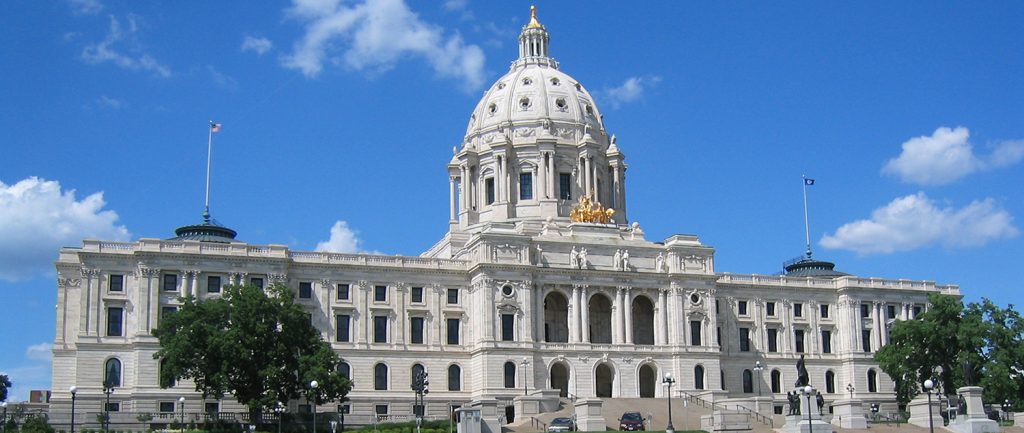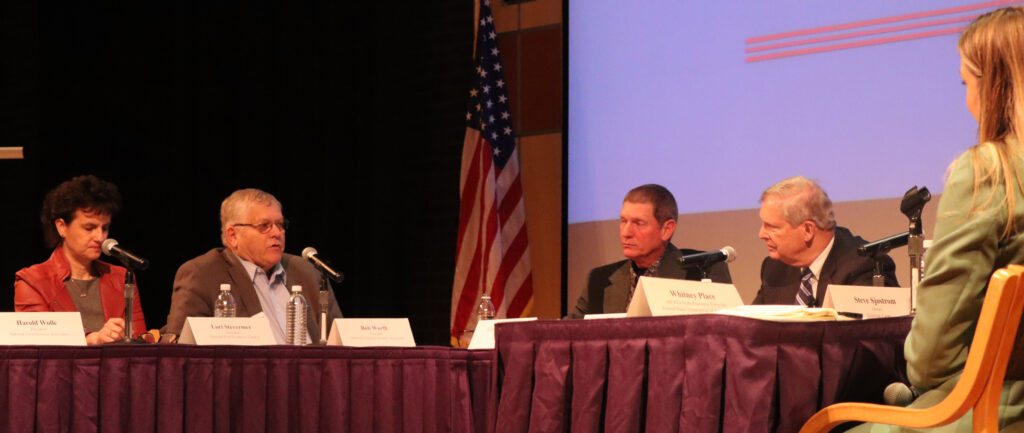MN leaders join national leaders to push Congress on biodiesel
The biodiesel industry rallied around the biodiesel tax incentive Wednesday as supporters took to Capitol Hill in Washington, D.C., to let Congress know the industry needs certainty to continue to grow.
The Hill visits were part of a larger meeting as the National Biodiesel Board (NBB) held its governing board elections at its November meetings.
Representing Minnesota at the meeting was Brewster, Minn., farmer Chris Hill, who is a Minnesota Soybean Growers Association (MSGA) director and Appleton, Minn., farmer and MSGA director Ed Hegland.
Hill and Hegland led a delegation of Minnesota biodiesel representatives on Capitol Hill as the group reminded Minnesota’s elected officials that farmers and the biodiesel industry need the tax incentive.

“Congress has allowed the biodiesel tax credit to expire, and it isn’t the first time,” Hill said. “We let our senators and representatives know how important biodiesel is to Minnesota, and how difficult it is to grow the industry when Congress won’t give us the certainty we need.”
The biodiesel tax incentive has played a key role in stimulating growth in the U.S. biodiesel, helping biodiesel become the leading EPA-designated advanced biofuel in the nation. The difficulty with the incentive is this: Traditional oil incentives are written permanently into the tax code, but the biodiesel incentive has repeatedly expired — in 2006, 2008, 2009, 2011, 2013, 2014 and 2016. Often, the credit is retroactively extended and reinstated, but the industry has been operating without the credit since Dec. 31, 2016. This severely disrupts producers’ access to capital, as well as their ability to hire and expand.
Former U.S. Senator Byron Dorgan (N.D.), who addressed NBB members as part of a panel Tuesday, said the biodiesel industry needs to keep moving forward and not fold to Big Oil.
“The oil industry has been at this for 100 years,” he said. “They’ve gone back to Congress and fought for their industry year after year. We’ve got to punch way above our weight … to get to where we want to go as an industry.”
When not expired, the tax incentive has allow the U.S. biodiesel and renewable diesel market to grow from roughly 100 million gallons in 2005, when the incentive was first implemented, to nearly 2.9 billion gallons in 2016.
Hegland era comes to an end
Hegland, who was appointed in 2004 by the Minnesota Soybean Research & Promotion Council (MSR&PC) to serve as its NBB member representative, has watched the growth of the industry. Hegland was elected to NBB’s governing board in 2005, served as its chairman from 2007 to 2010, and continued on the board until 2017.
“When I first got on NBB’s governing board, we had just passed the tax incentive language,” he said. “And I was chair when President Bush signed the RFS (Renewable Fuels Standard) into law. I’ve watched the industry really grow during my time on the governing board, and it’s been great.”
Hegland said the experiences he gained from his time with NBB have been invaluable.
“NBB is a diverse group of members, not just soybean farmers,” he said. “I am always amazed at the ideas that come from our governing members, and I appreciate the relationships I’ve formed.”
The November NBB meeting served as Hegland’s final meeting on the governing board.
“When I started, we didn’t allow a lot of time for our governing board to meet and set direction for the organization,” he said. “When I became chair, we decided to have a meeting of the governing board, a retreat so to say, in Washington, D.C., and that meeting became the standard for how the governing board has led the industry.”
At that meeting, Hegland said, the best of what NBB does really came to light.
“At that time, the tax credit incentivized feed stock biodiesel producers with a $1 credit, but animal fats were only credited at $.50. When the governing board met, we made a plan to harmonize the tax credit, but the goal was to lift up animal fats and not bring down feed stocks. When we brought it to our members, a soybean farmer made the motion and another soybean farmer seconded it, and we moved forward to harmonize the credit.”
Hegland said the harmonizing of the credit is a perfect example of what the biodiesel industry has been doing all along:




